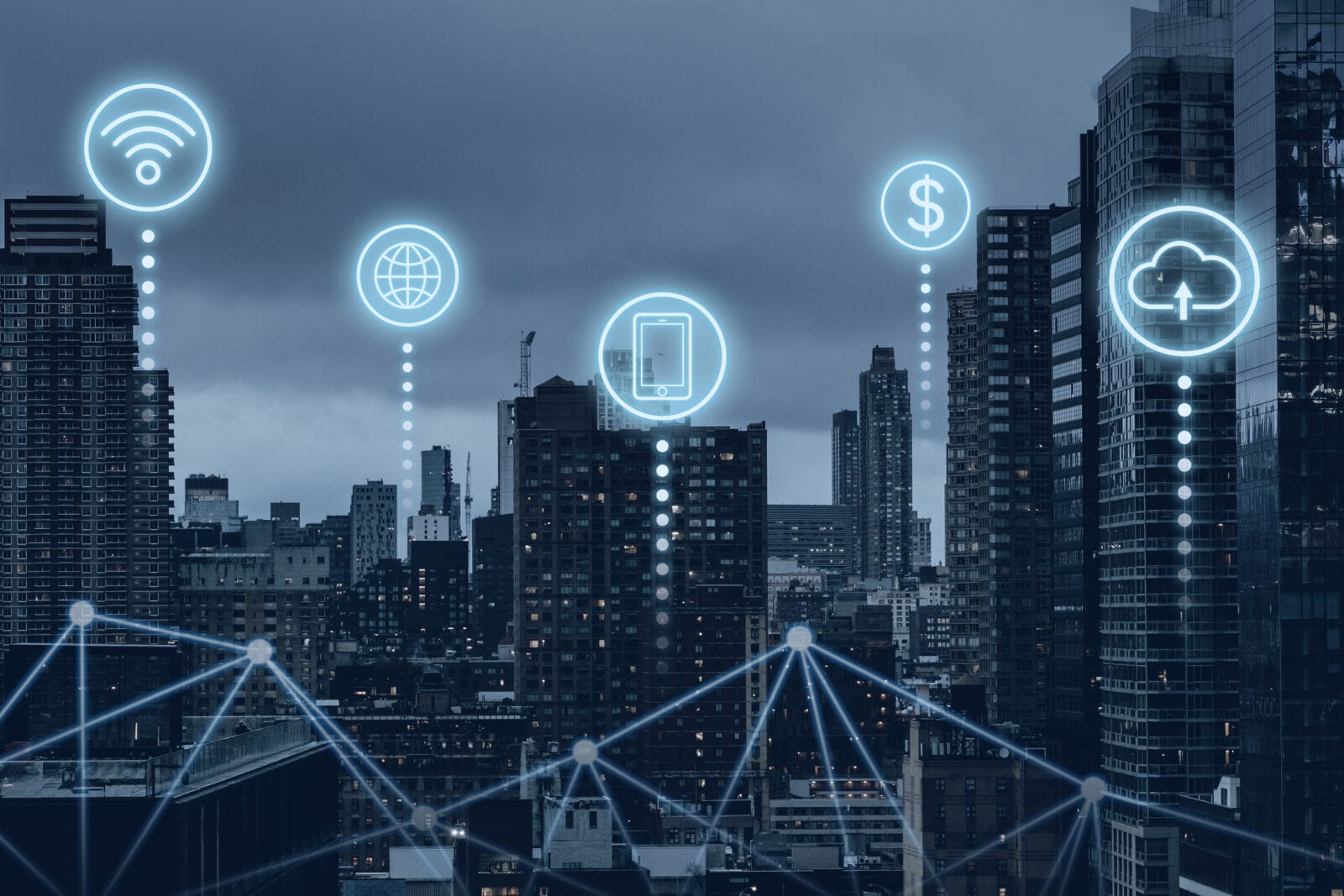Phoenix is widely known for its beautiful urban desert landscapes, offering stunning sceneries filled with picturesque sunsets and mountain ranges. It also has vibrant cultural and art districts showcased through historical galleries and distinctive theaters.
Aside from that, Phoenix, being the fifth largest city in the country, is increasingly becoming a technological hotspot, with 5G included at the forefront of its many advancements.
This guide will examine how 5G plays a role in transforming Phoenix into a more interconnected city. We will explain what sets it apart from previous generations and how it impacts households and businesses in Phoenix.
Understanding 5G Technology
5G is the latest standard in wireless communication. It’s the fifth generation or version of mobile network technology, designed to provide better overall performance and connectivity than its predecessors, the 4G and LTE.
We’re breaking down its common distinctions to understand further how this technology differs from previous versions.
Speed
5G technology offers faster data speeds than 4G and LTE. This version aims to deliver 20 Gbps (gigabits per second) for downloads and 10 Gbps for uploads. Before, 4G only had a maximum speed of 1 Gbps for downloads and uploads. Although speed will still depend on factors like location, network provider, and device capabilities, 5G still offers more speed than what was possible for its predecessors.
Latency
By far, 5G promises the lowest latency compared to previous generations. With 4G, we used to experience latencies that range from 60 to 98 milliseconds.
Meanwhile, early 5G networks have shown five to 20 ms latency capabilities. Experts believe modern 5G technology could push latency to 1 ms. When that happens, various online services could experience a significant boost, from gaming to streaming.
Capacity
5G networks can handle more devices simultaneously compared to 4G. This is crucial, considering the increasing amount of connected devices because of the Internet of Things (IoT) concept, where everything from home appliances to vehicles can be connected.
Before, 4G networks could support about 4,000 devices per square kilometer. Meanwhile, 5G promises to support around one million in the same area. This massive increase in device density is enabled by emerging 5G technologies and a higher frequency spectrum.
Network slicing
This is a crucial feature of 5G technology that enables the creation of multiple virtual, independent networks on a shared physical infrastructure. This technique allows 5G to efficiently support various services and use cases with different speeds, latency, reliability, and security requirements. This feature is not previously available in 4G and earlier generations of cellular data services.

What 5G Means for Phoenix Residents
The arrival of the 5G network in Phoenix benefits the community in many ways. For instance, Phoenix holds a significant number of remote workers since it’s one of the largest cities in the country. With 5G, work-from-home employees can perform various online tasks seamlessly, allowing them to access the cloud and other crucial productivity and collaboration platforms quickly.
Meanwhile, reduced latency and increased capacity have enabled Phoenix residents to adopt more smart devices. With 5G, Phoenix households could transition seamlessly into smart homes. Similarly, 5G allows businesses within the city to incorporate more IoT devices into their processes, enabling them to streamline their workflows better.
Moreover, 5G technology allows local residents to access more seamless remote healthcare, supporting real-time communication with professionals outside the city. That means doctors can monitor patients regularly and provide personalized care without needing in-person visits. This is highly beneficial to patients within Phoenix who have issues traveling to healthcare facilities or want to access specialists overseas.
5G also supports the gaming community in the city. Phoenix currently ranks number six among the best gaming cities in the country, offering various opportunities for aspiring gamers who want to establish themselves in the industry. The increasing adoption of 5G further boosts network performance at home or in internet cafes.
Current Challenges of the 5G Rollout in Phoenix
5G technology offers immense speed, lower latency, and better capabilities. However, it also introduces new challenges and vulnerabilities that must be addressed to ensure online safety.
Here are some challenges the 5G technology rollout could have.
Increased cybersecurity risks
The amount of devices that 5G can support, combined with the dense infrastructures that the technology requires, makes it a potential target for hackers. Cybercriminals could launch quicker, more sophisticated attacks on Phoenix residents and businesses.
Moreover, hackers could exploit 5G’s reliance on cloud technologies and Software-Defined Networking (SDN). While they help improve network efficiency and scalability, they can be exploited if not properly secured.
Supply chain vulnerabilities
With multiple vendors creating different components of the 5G infrastructure globally, the supply chain could become more vulnerable to security breaches.
Inconsistencies in vendor security practices could lead to vulnerabilities. This could lead to susceptibility to malicious software or hardware, counterfeit components, and compromised designs. Including untrusted components can expose the entire infrastructure to risks, significantly affecting the integrity, confidentiality, and availability of 5G data.
Market dynamics and priority solutions
Because the 5G market still has limited competition in certain areas, many providers could emerge and create proprietary solutions that may not always align with global standards. Some may limit interoperability with other technologies and restrict the customer’s ability to maximize 5G’s potential fully.
Aside from that, this market issue could hinder the ability of trusted companies to compete effectively and provide their customers with the proper 5G solution. This could only increase the risk of network and privacy compromises.
What 5G Can Do Against Cybersecurity Threats
Of course, Phoenix residents shouldn’t be alarmed by 5G’s potential challenges, especially since this technology boasts various solutions against different threats. These networks provide improved encryption protocols, ensuring that data transmitted from one point to another is secure and protected from unauthorized access.
Meanwhile, implementing 5G enables IT professionals to quickly identify threats and disseminate time-sensitive information or resources to combat any issues. This technology’s increased speed and capacity allow faster responses, preventing potential security breaches.
5G also supports network segmentation, which compartmentalizes different network sections to limit the impact of any attacks. This helps prevent unauthorized access to an entire network and reduces the cost and effect of the damage an attack could do.
Accessing the 5G Network in Phoenix
In Phoenix, several network providers are spearheading the rollout and expansion of 5G services. Verizon was among the first to introduce the technology in the country and has been expanding its 5G Ultra Wideband network in the city.
This network is known for its high speeds and low latencies, making it suitable for residential and business uses. Since its 5G rollout in 2019, the company aims to become an established home provider in the city.
Meanwhile, T-Mobile is increasingly becoming significant in the city’s 5G network. It currently has an incredible reach in most of the city. Although, compared with Verizon’s performance, T-Mobile still has some slow spots throughout Phoenix. However, it’s still a worthy competitor in the 5G market.
AT&T is another provider that’s impacting the city’s 5G technology. Initially, the company struggled with penetrating the market because of the network’s performance. However, AT&T has been showing promise in the area and could become more widespread, like Verizon and T-Mobile, in the coming years.
The good news is that many reliable phone providers in the city offer some of the best carriers, like T-Mobile and AT&T.
Consumer Cellular is one of the best options many Phoenix residents choose for their 5G access. It’s been a popular choice, particularly for consumers who want reliable units without breaking the bank. They also offer a wide range of 5G capable phones, supporting the city’s rollout success. Consumer Cellular can cater to your needs whether you prefer 5G Samsung phones or iPhones.
The Continuous Rise of 5G Network
The successful rollout of 5G technology in Phoenix represents a significant leap in modern connectivity and innovation. Despite its potential challenges, 5G promises substantial benefits in terms of speed, performance, and connectivity compared to its predecessors. Phoenix is just one of the many stops of 5G’s continuous domination.



